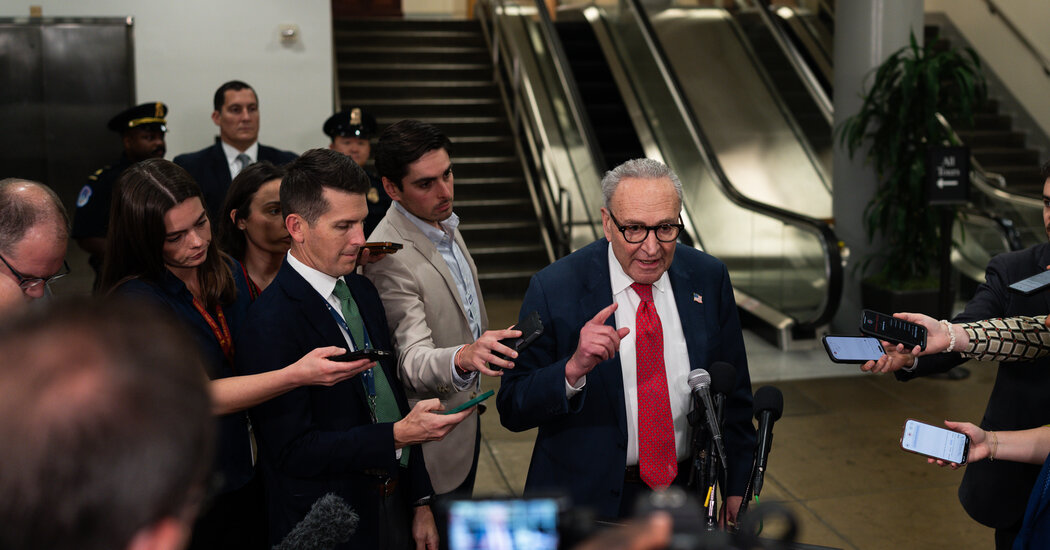Copyright The New York Times

Senate Democrats on Friday substantially scaled back their demand for ending the government shutdown, saying they would be willing to do so in exchange for a one-year extension of expiring health care subsidies. The proposal, announced by Senator Chuck Schumer of New York, the minority leader, is almost certainly dead on arrival. Speaker Mike Johnson has refused to commit to even allowing a measure extending the Obamacare subsidies to receive a vote on the House floor, and many Republicans are opposed to renewing the tax credits, at least without major changes. But it amounted to a major move by Democrats, whose previous proposal for funding the government was tied to a permanent extension of the subsidies and the repeal of a set of deep Medicaid cuts that President Trump signed into law over the summer, among other things. Mr. Schumer framed the offer as a reasonable off-ramp to a shutdown that has threatened to snarl flights and sap food benefits across the country and stretched into a 38th day on Friday, with hundreds of thousands of federal workers furloughed or working without pay. “Democrats are ready to clear the way to quickly pass a government funding bill that includes health care affordability,” Mr. Schumer said. He called om Senator John Thune, Republican of South Dakota and the majority leader, to add the extension of health care tax credits slated to expire in December to the stopgap spending bill he has been trying to pass for weeks. “That is not a negotiation; it’s an extension of current law — something we do all the time around here, as we all know,” Mr. Schumer said. There was a distinct sense of inertia at the Capitol on Friday, where senators had been bracing to work through the weekend but were uncertain of what they would be debating or whether any real progress could be made toward reopening the government. Mr. Thune had previously signaled that he would call another vote on Friday on advancing yet another temporary spending bill to end the shutdown. With Democrats poised to thwart the measure again, as they have repeatedly over the past few weeks, it was unclear whether or when Mr. Thune planned to hold another vote. Mr. Thune had raised the idea of voting on a new stopgap funding measure, plus three separate spending measures for programs related to agriculture, military construction and legislative agencies for most of 2026. But bipartisan talks to finish those spending bills were still ongoing on Friday, with several key sticking points still unresolved. Democrats, for example, were quietly pressing Republicans to include language in the spending bills that would reverse the mass firings of federal workers carried out by the Trump administration during the shutdown.



